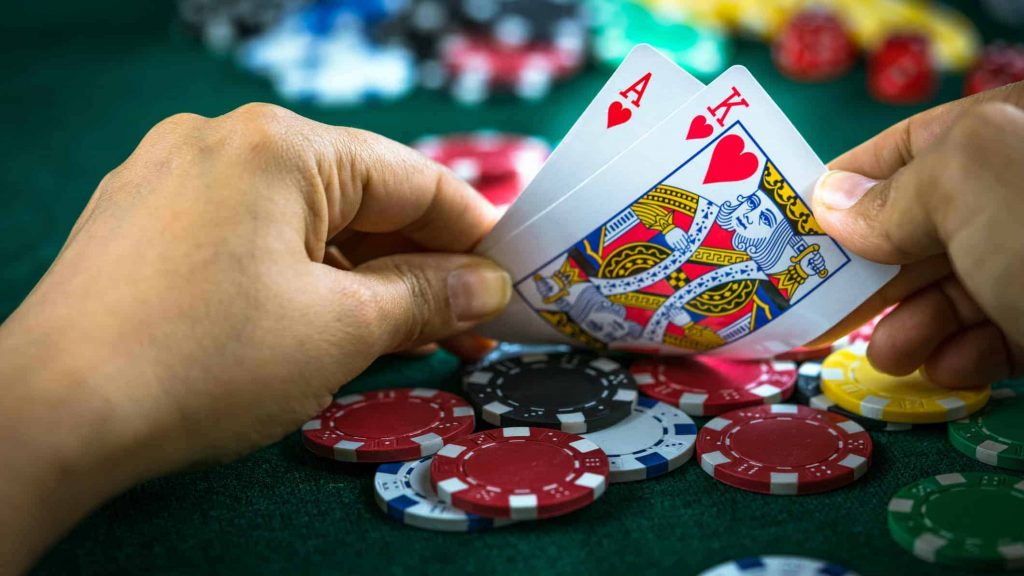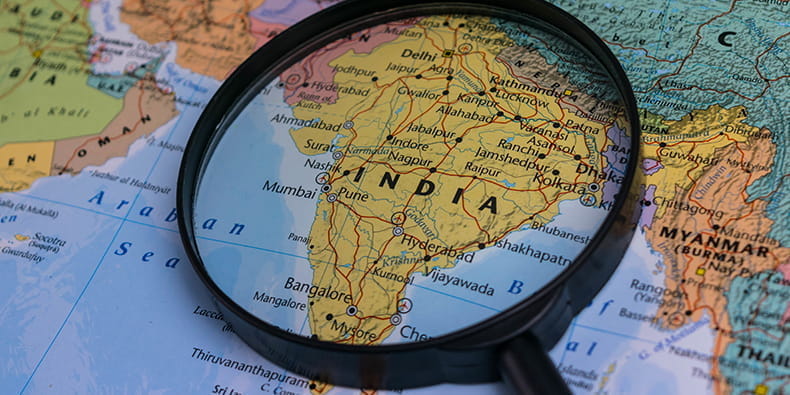Is Gambling Allowed In India
India has 29 states out of which 13 states have allowed lottery while two states – Goa and Sikkim have legalized many other forms of gambling like casinos, online gambling, etc. Gambling Laws in Goa Goa is one of the states well known for its top of line casinos. There are two state governments in India which have passed state level legislation to allow legalized casino gambling. Goa was the first to do so, initially to allow slot machines in hotels and subsequently to allow fully fledged casinos. The state is now home to several land based casinos, and a number of cruise ship based casinos.
India has a large young population that enjoys gambling. Sports betting is one of the popular entertainment options in India. People love to bet on the most popular sports such as cricket and horse racing. Casio games are also enjoying immense popularity, so the industry has experienced massive growth. However, there are many issues and concerns when it comes to the legal aspects of the gambling industry.
How is gambling regulated?
We must not forget that gambling in India is strictly regulated by law. The law marks many activities as illegal, which makes it difficult for users to access their entertainment source. The biggest problem with the gambling laws is that they are outdated and not very clear about what they refer to. The legislative didn’t anticipate that the technologies will change the gambling world. Online gambling didn’t exist when the laws were made, so it isn’t clear if it is prohibited. You would find it very difficult to determine what is legal in India, and what isn’t. This issue has had many experts and industry professionals concerned. They debated the problem, but the answers aren’t clear yet.
Laws and legislation that cover the industry
When it comes to laws related to gambling, India faces a big problem. Right now, the only legislative that covers this specific industry is the Public Gaming Act of 1867. The fact that it is over 100 years old brings so many concerns. The outdated laws referred to the situation at that time, and it didn’t anticipate the changes in modern society. There have been amendments added, but they didn’t solve the issue of the outdated laws.
According to the Public Gaming Act, owning a venue where gambling happens is considered illegal. Also, it is illegal for people to visit such a place. However, there is no strict description of what is classified as gambling. You can’t tell if betting on s sports game is considered as an illegal activity.
How is online gambling regulated?
Online gambling isn’t clearly regulated by law. The act that regulated gambling is more than 100 years old. At that time, the internet didn’t exist, so it is impossible to anticipate the changes.
The Public Gaming Act and Information Technology Act regulate this area, but they don’t state that gambling online is illegal. Only two states are clear with the regulation. It is prohibited in Maharashtra. In Sikkim, you have the obligation to obtain a license from the government if you want to offer online gambling services.
To sum it up, online gambling isn’t clearly defined in India. You can play games here on this site for example and enjoy the entertainment, without any hesitation. For now, there has been no evidence of any Indian resident getting charged for using an online gambling site. While gambling isn’t fully described as legal, you won’t get in trouble. The only exception to this is the state Maharashtra, where online gambling is very strictly defined and prohibited.
How are different games regulated?
In India, gambling is defined as an activity where you face the risk of losing or win money. The act states that the laws don’t apply to skill games. For example, horse betting is legal on the state level in India. You are free to watch horse races and place a bet on the parlors that are available.
Lotteries are another form of gambling allowed in India. They aren’t a game of skills but are still approved. This proves the contradiction between the laws. There is a particular act that regulates lotteries, which states that the maximum of draws per week. However, you will find out that this isn’t enforced.
Gambling in India varies by state as states in India are entitled to formulate their own laws for gambling activities. Some states like Goa have legalised casinos. Common gambling activities like organized betting is restricted except for selective categories including lotteries and horse racing.

In the 21st century, more people have started making cash bets upon prohibited betting and gambling activities in India. Critics of gambling claim that it leads to crime, corruption and money laundering. However, proponents of regulated gambling argue that it can be a huge source of revenue for the state. Casinos in Goa contributed Rs. 135 crores to the state revenue in 2013.[1]
Casinos now operate in Goa, Daman and Sikkim.[2]
Legality[edit]

Gambling is a state subject, and only states in India are entitled to formulate laws for gambling activities within their respective states. The Public Gambling Act of 1867 is a central law that prohibits running or being in charge of a public gambling house. The penalty for breaking this law is a fine of ₹200 or imprisonment of up to 3 months. Additionally, this Act prohibits visiting gambling houses. A fine of ₹100 or imprisonment of up to one month is the penalty.[3]
Indian law classifies games into two broad categories viz. game of skill and game of chance. The Supreme Court of India has, for instance, held[4]
The game of Rummy is not a game entirely of chance like the ‘three-card’ game mentioned in the Madras case to which we were referred. The ‘three card’ game which goes under different names such as ‘flush’, ‘brag’ etc. is a game of pure chance. Rummy, on the other hand, requires a certain amount of skill because the fall of the cards has to be memorised and the building up of Rummy requires considerable skill in holding and discarding cards. We cannot, therefore, say that the game of Rummy is a game of entire chance. It is mainly and preponderantly a game of skill.
The Information Technology Act 2000 regulates cyber activities in India does not mention the word Gambling or Betting thereby the act was left for interpretation by the Courts which have refused to examine the matter. Further, online gambling is a banned offense in the state of Maharashtra under the 'Bombay Wager Act'.

Only three states allow casinos, Goa , Daman and Sikkim.[5] There are two casinos in Sikkim called Casino Sikkim and Casino Mahjong and 10 in Goa, of which six are land based and four are floating casinos that operate on the Mandovi River. The floating casinos in Goa are Casino Deltin Royale, Casino Deltin Jaqk, Casino Pride and Casino Pride 2. While the first two are controlled by the Deltin Group, the latter two are managed by the Pride Group. According to the Goa, Daman and Diu Public Gambling Act, 1976 casinos can be set up only at five star hotels or offshore vessels with the prior permission of the government. This has led the Deltin Group to open the first land based Casino in Daman which is open now. News reports also suggest that Visakhapatnam is also being looked on as the next casino destination.[6]
Online[edit]
Online gambling is in its infancy in India, but Sikkim planned to offer three online gambling licences in 2010. This failed despite India being the most sought out country for online gambling.[7] Sikkim also permits an online lottery, which takes bets from players throughout India. It was expected that other states would follow Sikkim, thereby opening up a major online gambling market throughout India.
Even though Indian casinos cannot promote or have sites that promote online gambling games such as casino, sports betting and bingo, it is not illegal for non-Indian casino companies (so called offshore companies) to have sites that focus on Indian players. The only requirement from a legal point of view is that the offshore casinos have to offer Indian Rupees as a payment method for Indian players. Although this is not accurate anymore since January 2020.
Unlicensed gambling is happening regardless, with as much as $60 billion worth of action and $48 billion being directed at Indian cricket alone.
Legalisation[edit]
Despite the existing prohibitive legislations, there is extensive illegal gambling throughout the country. The Indian gambling market is estimated to be worth US$60 billion per year, of which about half is illegally bet.[8] According to the Indian National Newspaper, the Chief Executive officer for the International Cricket Council (ICC) said he was in favour of legalising betting in sports. He believes the illegal funds profited are through underground bookies that used the money to fund terrorism and drugs.[9] Many Indian professionals as well as online forums have urged the government to introduce legal but regulated gambling in India to bring the gambling economy out of the grip of mafia and underground dons.[10]
Payment gateways[edit]
One of the biggest obstacles faced by sports bettors in India is the fact that depositing to foreign bookies is extremely difficult. Typically, the majority of users deposit to online bookies using Moneybookers or Neteller. Some attempts to deposit using a Visa or MasterCard may fail. The same is true of online bank transfers. In order to circumvent these blocks, savvy internet users have started to use e wallet services for depositing. These services, enable users to fund an online betting account in Rupees. This is important because it avoid legal issues that may have arisen out of F.E.M.A Foreign Exchange law.
See also[edit]

References[edit]
- ^'Goa casinos contribute Rs 135cr revenue in 2012-13 - Times of India'.
- ^Reddem, Appaji. 'NRI bets on Andhra Pradesh, moots casino on the Krishna'. The Hindu. Retrieved 20 February 2017.
- ^'The Public Gambling Act, 1867'. www.indiankanoon.org.
- ^Sayta, Jay (January 1, 2012). 'LEGALITY OF POKER AND OTHER GAMES OF SKILL: A CRITICAL ANALYSIS OF INDIA'S GAMING LAWS'(PDF). NUJS Law Review. Archived from the original(PDF) on November 2, 2013. Retrieved January 3, 2015.
- ^Patil, Ajit (28 May 2009). 'Casinos in India'. India Bet. Archived from the original on 9 April 2011. Retrieved 28 October 2009.
- ^'Casinos want to gamble on Visakhapatnam'. Deccan Chronicle. 3 November 2014. Retrieved 6 November 2014.
- ^Sanjay, Roy (27 October 2009). 'Indian online gambling market set to open up'. India Bet. Retrieved 28 October 2009.
- ^Thompson, James (27 October 2009). 'Betfair and William Hill target India'. The Independent. Retrieved 28 October 2009.
- ^'Sports Betting Favoured by ICC'. CasinoOnline.net.in. Retrieved 8 August 2011.
- ^Ashok, Donnie. 'Jay Sayta, Founder Glaws.in, on how he became an authority in Gambling Laws'. Superlawyer.in. Superlawyer. Retrieved 2014-12-21.